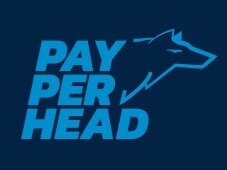 At club football level, the chance for an upset is not as low as you may think. On any given weekend, a team that is leading the league may be defeated by one struggling against relegation. Because there are usually close to forty league games for each team to play in a season, your guard will come down from time to time and if you’re riding high and the opposition desperately battling relegation, hunger will do the job, causing a team that is overwhelmingly favoured by betting sites Cyprus to let it slip for one weekend. Normal service is usually quickly resumed.
At club football level, the chance for an upset is not as low as you may think. On any given weekend, a team that is leading the league may be defeated by one struggling against relegation. Because there are usually close to forty league games for each team to play in a season, your guard will come down from time to time and if you’re riding high and the opposition desperately battling relegation, hunger will do the job, causing a team that is overwhelmingly favoured by betting sites Cyprus to let it slip for one weekend. Normal service is usually quickly resumed.
In international football, it is much less common to see a less-vaunted team pick up a win over a favoured contender. International teams play just a few games every year, and when those games are competitive as opposed to friendlies, they bring their full concentration to it. While club football needs a full-season shock to really grab the attention, an international team losing to a minnow is a big deal. They can call on players from the best clubs in the world; their opponents can scratch together any eleven people with boots and a passport. And that’s why international football shocks, when they come, are talked about for decades afterwards.
North Korea 1 Italy 0, 1966
After early defeats, both teams came into this game needing a win to reach the quarter-finals. The expectation was that Italy would more or less match the 3-0 blanking that the USSR had inflicted on the North Korean side. Instead, Pak Doo-Ik fastened on to a loose ball outside the Italian penalty area just before half-time. He unleashed a shot which flew into the Italian net, and despite intense second-half pressure, that would be the game’s only goal. On returning home, the eliminated Italian squad was pelted with rotten tomatoes. North Korea for their part took a 3-0 lead in the next round against Portugal, but a dream trip to the semis was denied by a second-half Eusebio-inspired comeback and a 5-3 defeat.
Ireland 1 England 0, 1988
Ireland have played – and beaten – better teams than the 1988 version of England, but in 1988 they entered the Euros as rank outsiders, the weakest of the eight teams taking part. The goal that sealed the game came in the sixth minute, and wasn’t the best you’ll ever see. Irish attackers couldn’t get a clean cross in, but English defenders couldn’t fashion a clearance and as the ball ballooned into the Stuttgart air Ray Houghton, then of Liverpool, met it with a looping header. Peter Shilton was beaten and so, 84 minutes later, were England. Jack Charlton, a former World Cup winner with England, became an Irish national hero for masterminding the upset victory, and the story was only beginning.
Saudi Arabia 2 Argentina 1, 2022
Lionel Scaloni’s side came into the tournament as one of the favourites, and an early Leo Messi penalty seemed to herald a comfortable entry to the 2022 World Cup. As the first half went on, an unusually profligate Argentina failed to add to their lead, and they paid for it within the first ten minutes of the second half. First Saleh Al Shehri fired in an equaliser, and then a stunning curling strike from Salem Al Dawsari in the 53rd minute put the Saudis 2-1 up. Even with the 2022 World Cup’s fashion for adding on huge swathes of time after the 90 minutes had elapsed, Argentina could not find an equaliser. Still, all’s well that ends well.
 The oldest race run at the Cheltenham Festival is Grand Annual Challenge Cup Handicap Chase or, more correctly, the Johnny Henderson Grand Annual Challenge Cup Handicap Chase, as the race has been known since 2005.
The oldest race run at the Cheltenham Festival is Grand Annual Challenge Cup Handicap Chase or, more correctly, the Johnny Henderson Grand Annual Challenge Cup Handicap Chase, as the race has been known since 2005.
The late Major John ‘Johnny’ Henderson, father of leading National Hunt trainer Nicky Henderson, was an influential figure in the horseracing world. In 1963, he brought together a group of investors to buy Cheltenham racecourse for £240,000, thereby preventing it from being taken over by property developers. The following year, he was instrumental in the formation of Racecourse Holdings Trust (now Jockey Club Racecourses). Henderson Snr. died in December, 2003, aged 83 and, two years later, his name was added to the race title in recognition of his contribution to safeguarding Cheltenham.
Nowadays, the Johnny Henderson Grand Annual Challenge Cup Handicap Chase is run over a distance of about 2 miles, or 1 mile, 7 fulongs and 199 yards to be precise, on the New Course at Cheltenham on the second day of the Cheltenham Festival. However, the inaugural Grand Annual Chase was run on April 4, 1834 – five years before the first ‘official’ running of the Grand National –
in the vicinity of Andoversford, east of Cheltenham. Thus, the Grand Annual Chase is not only the oldest race run at the Cheltenham Festival, but also the oldest surviving race in the British National Hunt calendar.
The Grand Annual Chase was run over various courses and distances – in 1835, for example, a distance ‘upwards of four miles’ – in the locality until 1843 and, after a four-year hiatus, was transferred to Noverton, adjoining Prestbury Park. Between 1861 and 1866, the race was run at Southam, Warwickshire and, thereafter, not run at all until the early twentieth century; it finally returned, permanently, to Cheltenham in 1913.
Stockport-born Richard ‘Ricky’ Hatton made his professional boxing debut against Colin McAuley at the Kingsway Leisure Centre in Widnes in September, 1997, winning by technical knockout in the first of four scheduled rounds. Forty-three fights and just over a decade later, he would finally surrender his unbeaten record to the similarly unbeaten Floyd Mayweather Jr. at the MGM Grand Garden Arena in Las Vegas, Nevada.
On December 8, 2007, in a fight billed, imaginatively, as ‘Undefeated’, Hatton (43-0-0) challenged Mayweather Jr. (38-0-0) for the World Boxing Council (WBC) and The Ring world welterweight titles. In the sixth round, Hatton was deducted a point by referee Joe Cortez for hitting his Mayweather on the back of his head, having pushed him off-balance through the top rope.
Thereafter, Hatton began to tire and Mayweather started to take control. With just under two minutes remaining in round ten, Mayweather landed a powerful left hook that knocked Hatton to the canvas, via a ringpost. Hatton rose at the count of eight, but was unsteady on his feet and, despite hanging on valiantly, was caught with two more left hooks that knocked him down again. After 1:35, Cortez waved off the contest, without starting a count, to give Mayweather victory by technical knockout.
Hatton subsequently returned to the light-welterweight division, making two successful defences of his International Boxing Organisation (IBO) world light-welterweight title, against Juan Lazacano and Paulie Malignaggi, before being knocked out in the second round by Manny Pacquiao, back at the MGM Grand Arena, in May, 2009. After a three-year hiatus, he made a brief, but unsuccessful, return to professional boxing before retiring with a 45-3-0 record.
For the uninitiated, the FIFA World Cup match which became known as the ‘Battle of Berne’ was the quarter-final between Hungary, a.k.a. the ‘Mighty Magyars’, and Brazil, played at the Wankdorf Stadium in Berne, Switzerland on June 27, 1954. History records that Hungary won the match 4-2, before beating Uruguay 4-2, after extra time, in the semi-final and losing 3-2 to West Germany in the final.
However, the final scoreline was no reflection of the quality of the play on the field during what was, arguably, the most eventful 90 minutes. In a match played in treacherous, rainy conditions, Hungary took an early 2-0 lead, courtesy of goals from strikers Nándor Hidegkuti and Sándor Kocsis, before Brazilian right-back Djalma Santos pulled a goal back, from the penalty spot, after 18 minutes.
The scoreline remained 2-1 until half-time but, when Hungary were awarded a penalty, scored by left-back Mihály Lantos, after an hour, all hell broke lose. The Brazilian entourage invaded the pitch and, thereafter, the match descended into a free-for-all, with cynical, professional fouls and violent conduct very much the order of the day. Brazilian striker pulled another goal back after 65 minutes but, six minutes later, Hungarian midfielder József Bozsik and Brazilian left-back Nilton Santos came to blows after a foul by the latter and both were sent off. Brazilian striker was also dismissed for violent conduct after 71 minutes.
Kocsis scored his second goal of the game after 88 minutes to seal a 4-2 victory for Hungary but, by that stage, the final score was almost immaterial. After the final whistle, the violence continued, on the pitch, in the tunnel and even in the dressing rooms but, remarkably, FIFA took no disciplinary action against either country.
The man charged with maintaining order on that fateful day was Yorkshire-born Arthur Ellis. He would later become a familiar face on the BBC television game show ‘It’s A Knockout’ but, at that time, was one of the most famous referees in England. Having awarded 42 free kicks and two penalties, and issued four cautions and three dismissals, Ellis said, ‘Whether politics and religion had something to do with it I don’t know, but they behaved like animals. It was a disgrace. It was a horrible match….My only thought was that I was determined to finish it.’



